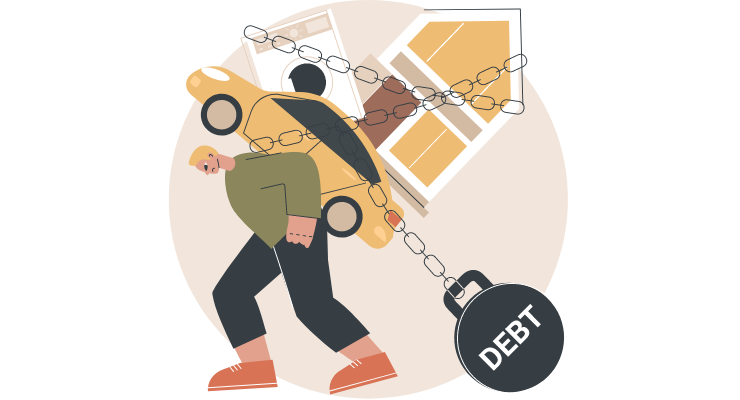ABS Ambassador Rick McCluggage shares his advice on working from home during this period of social isolation.
At the start of the lock down, I compiled a few words to assist and guide my colleagues with
working from home. For many it was a new concept as we are usually all based full-time in our Edinburgh studio.
Three weeks on, we seem to be working well in isolation and, like most in the profession, are using Teams and Zoom to communicate with colleagues and others. In fact, we had our first Scottish Ambassadors Teams meeting last week with Tom of ABS.
Get dressed!
For some people, the idea of staying in their PJs all day was the most appealing aspect of working from home. Don’t be tempted, get up have a shower and get dressed as you normally would! This will improve your state of mind and psychologically prepare you to start work. The point of getting dressed is being forced to shower and change out of clothes we associate with sleep and rest, even if that means just changing into a T-shirt and jeans.
Feedback from colleagues is that wearing ‘respectable’ clothes also increases motivation to leave home for fresh air and exercise.
Keep to a routine
Create a habit that signals the start of the workday. Maybe leave the house for a quick walk as if you were walking into the office. I have a quick walk round the block or potter around in the garden for 15 minutes while I drink my coffee. Open your emails, check in with your colleagues you will be interacting with during the day. Have your coffee as you sit down to start work as you would in the office. Whatever you choose, try and do it consistently to mark the start of working hours. I have read recently about how sleeping patterns have completely changed during the lockdown, but they don’t need to. Go to bed at a reasonable hour so that you get enough sleep and then wake up at your usual time.
Adjust your normal working hours
If you are a night owl or an early bird, try adjusting your usual work hours to suit and see if this suits you better, just remember to be around to speak with colleagues when they need to contact you!
If, like me you have kids, you may need to accept that none of the above will work for you at particular times and you may need to work around them and have to catch up at other times. It is also important that if you have kids or a partner that is a key worker that you are open about how effective your working day is so that expectations aren’t unrealistic!
Plan your day
Make a plan for each day, a list of tasks, deadlines etc. and communicate these with your colleagues and team members. Check your diary, it is easy to miss a meeting appointment when there is no one else around to remind you. It is easier to drift away for your plan when you are working alone so structure and being organised is really important.
Workspace
If you can, set up a space that is your workspace. Pick an area where you’re not being constantly interrupted. If you need to & are able to, take your desk chair from the office as you need to be comfortable and supported, not sitting on an old wooden chair the whole day. If there is anything else you think you need to work effectively let your employer know and they will no doubt help you. If you are an employer, you have the same health and safety responsibilities for home workers as for any other workers. See advise here.
Take breaks and get outside (while self-isolating in line with Government advice)
Give yourself adequate time during the day to walk away from the computer screen, grab a tea or coffee, do some stretches, do some chores. Don’t fall into the trap of taking a break from work then sit on your iPad reading about Coronavirus for 20 minutes (my early mistake)!
Leave your home every day if you can. You need to move and the fresh air and natural light will do you good. Take a walk locally, go for a cycle or do some work in the garden if you have access to one. Also open a window when you are home to get enough fresh air.
Contact with others
Loneliness, disconnect, and isolation are common problems in remote work life. If you live alone, phone or video-call a colleague, family member or friend at lunch or when you are taking a break. Have a real conversation, rather than relying on email and instant messaging. Also, participate in any group activities your office is doing, like contributing to the social media feed, virtual sketch club etc. Feedback from colleagues is that these regular chats with others have been a really important aspect of home working.
Attend the virtual team meetings and be heard
It is important to make sure you’re on time to join video conferences and conference calls. Speak up during the meeting so everyone knows you’re there. The host and other senior team members should make an effort to get everyone to contribute and get involved in these meetings.
Take sick days
When you’re sick, take a sick day as you would if you were working in the office. Let your employer and colleagues know if this is the case as you usually would and when your situation changes.
Overcommunicate
Working remotely requires you to overcommunicate. Tell everyone who needs to know about your schedule and availability often. When you finish a project or important task, tell your team members so they know, and encourage them to do the same.
Be positive
A good piece of advice I read at the start of the lockdown is that the less actual face time you have with people, the less they know how to interpret your tone. When you work remotely, you must be positive, to the point where it may feel like you’re being overly positive – embrace the exclamation point! Find your favourite emoji =D. You’re going to need them!
End your day with a routine
Just as you should start your day with a routine, create a habit that signals the end of your workday. It might be simply to tell your colleagues you are stopping and head off for a walk. Or you might have a simple routine such as shutting down your computer and turning on a favourite podcast, play with the kids or watch the tele. Whatever you choose, do it consistently to mark the end of your working day.
It is very important to adapt and make it work best for you. We are in an unprecedented situation that has caught everyone by surprise. If you are struggling with working at home, are getting bothered by loneliness or anything else, call a friend, colleague or your manager. Alternatively, you may wish to contact the ABS to discuss what help they offer. Their email is help@absnet.org.uk or you can reach them by phone on 020 3918 8588.
There is also helpful advice offered freely on the AnxietyUK YouTube channel.





